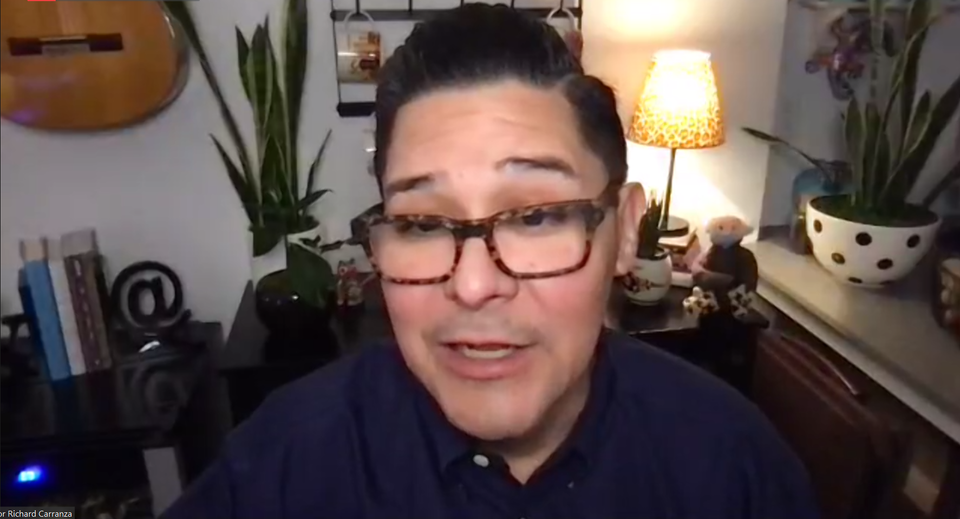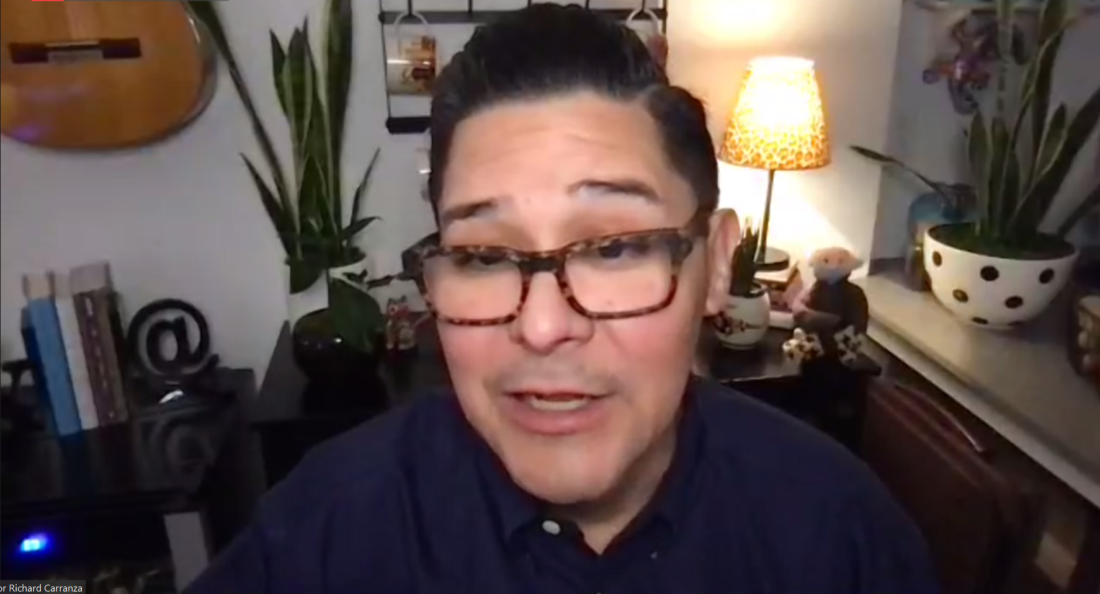“Suicide Rate Amongst Our Students Is Rapidly Doubling,” Schools Chancellor Shares At CEC21 Town Hall


Wednesday night Southern Brooklyn Community Education Council (CEC) 21 hosted a town hall with Schools Chancellor Richard Carranza. Originally, the event was meant for March 2020, but was rescheduled due to the pandemic, and done via a Zoom session rather than an in-person gathering at a local school auditorium.
CEC21, which covers Gravesend, Bath Beach, Coney Island, and parts of Bensonhurst and Sheepshead Bay, has over 33,000 students in the public school system and is the second largest district in Brooklyn (Brooklyn districts range in size from 5,000 to 50,000 students). It is noted for its strong support for G&T programs and even has some schools with those programs, in particular, I.S. 239 Mark Twain on Coney Island.
The CEC conducted the session by dividing the questions between public call-ins and those submitted to the CEC prior to the Town Hall. That meant four CEC members – President Anna Lembersky, First Vice President Randi Garay, Treasurer Luke Constantino, and Saima Arfan – chose among the questions that were submitted to the CEC beforehand, as well as members also asked their own questions. Lembersky said this was seen as the best fit for a virtual town hall.
“Each CEC has the opportunity to choose the format that they would like to have the Town Hall,” she told Bklyner via an emailed statement. “CEC21 chose to have it done this way so that the most important questions and concerns that were received by the council were ensured to be addressed.”
The Town Hall drew just under 200 viewers, and 28 panelists, including Isabel DiMola, the Superintendent for Elementary and Middle Schools, and Barbara Freeman, the Executive Superintendent for Brooklyn South, both of whom occasionally answered questions. The chatroom was disabled, which, as the Department of Education’s Deputy Press Secretary, Sarah Casanovas explains, is standard.
“The chat is disabled as a standard practice by the vendor platform that hosts the meeting to ensure the safety, privacy and well-being of the town hall participants,” Casanovas told Bklyner.
For the first half of the one-hour Town Hall, the CEC members asked questions about how the DOE intends to tackle the emotional and mental health of students, who have seen that part of their health drop in the nearly one year since the COVID19 pandemic took over Brooklyn. There were also questions about whether immunizations would be mandatory, whether PTAs will be permitted to do senior activities for fifth, eighth, and twelfth graders, and the application process for eighth graders.
For all these questions, the Chancellor seemed to give rehearsed answers, as well as repeat the answers he gave for CEC16’s Town Hall in late January regarding middle school screening and how the DOE would help with the emotional and mental health of its students.
For the latter, the Chancellor twice brought up how he’s spoken with school leaders across the country, and how those leaders told him about the suicide rate among youths doubling or tripling during this pandemic. Carranza mentioned that the city’s statistics are seeing alarming increases with suicide rates doubling, though the Department of Education (DOE) did not share the actual data despite repeated requests. DOE solutions for improving the mental health of its students involves partnering with public hospitals and hiring more social workers and guidance counselors.
This issue also led to the longest answer from Carranza when CEC member, Saima Arfan, asked if he could share the findings on the effects of COVID19 on students. From there, Carranza spent about four minutes explaining again how the DOE was creating a social/emotional plan to screen the mental health of students. He also had strong words regarding the state budget cuts to education.
“The children of New York City right now are being robbed,” the Chancellor said. “The latest federal stimulus package has within it $2 billion that should be coming directly to the students of New York City. It should supplement what the state already has a responsibility for our children. I mention not because I’m trying to throw anyone under the bus, but my job is to advocate for our children. This is very much around the area we need to advocate, because it is literally, literally, the life and death of our children that we’re talking about. Our suicide rate amongst our students is rapidly doubling.”
Later on, during the public part of the Town Hall, six students from Edward R. Murrow High School called in to inform the Chancellor and the two Superintendents about the racist harassment they had received at their school. One Russian-speaking parent asked about the date when middle schools open.
But the longest time during the public session was given to City Councilman Mark Treyger of D-47, and a D21 native. The Councilman also spoke in length about the budget cuts, with the Chancellor chiming in at the end. This part of the Town Hall lasted during the final 10 minutes of the event, with other members of the public waiting for their turn. The public question part of the Town Hall saw almost no questions being asked.
However, CEC21 President Lembersky says any questions that went unanswered were passed to the Chancellor.
“I think that the Town Hall went well,” she told Bklyner via email. “Chancellor Carranza answered the questions and concerns that the council received and was able to address students’ concerns as well. Unfortunately, there is a strict one-hour time frame so we could not get to the public’s questions, but they were told to email the council and that we will forward those questions to the Chancellor’s team.”
